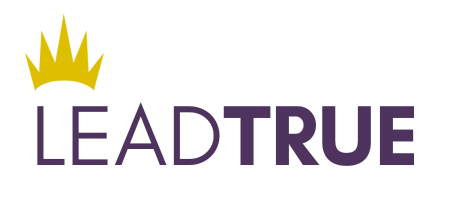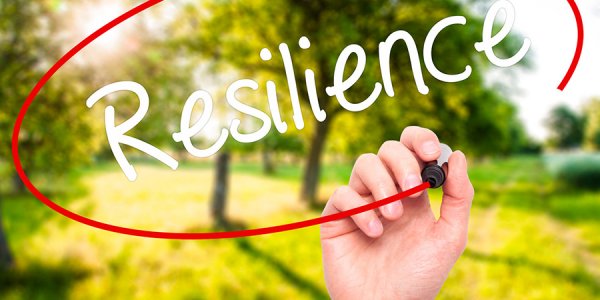Bounce-back-ability: 3 Steps to Build Resilience in Yourself and Others
by Elizabeth Ruske & Dr. Kate Webster
Part of our Applied Leadership Series
"Resilience is knowing that you are the only one that has the power and the responsibility to pick yourself up." —Mary Hallowell
In today’s global and technologically advanced business world, resilience has become one of the top five leadership traits essential for navigating a changing and fast-paced work environment. Resilient leaders, who bounce back from setbacks and stay focused on the big picture during disruptive times, have the capability to rise and meet various business challenges along with their teams.
At the same time, the demands we put on ourselves personally and the crises we face at home can deplete us, wear us down and confront our ability to be resilient both at home and at work, which affects our relationships, our children, and our communities.
Let’s face it. We need to be resilient in all areas of our lives at all times. In any given moment we are:
Personally facing tough times
Experiencing setback after set back, when nothing is going our way
Holding onto a big dream with no clue about how to get there
Working at a company or organization going through significant changes
Leaned on by others to be strong when we are feeling weak ourselves
To be resilient, do we have to be born with this “bounce-back-ability?” Or is there a way to cultivate it, use it, and help others build their own?
We believe you can cultivate it in yourself and others by understanding that resilience comes from knowing who you are and what you stand for in the face of any circumstance. Like a large tree swaying in a windstorm, being rooted in a strong, conscious system of beliefs and values helps you sway and bend without breaking.
The 3 steps to building resilience in yourself and others are:
Choose to focus on positive, forward-moving beliefs
Act in alignment with your values
Take care of yourself in the process
1. Choose to focus on positive, forward-moving beliefs.
Carla* worked in an IT department of a Fortune 500 company. After a recent reorganization of her department, she had to report to someone with her same rank and title. Carla felt hurt and confused—worrying whether she was being sent a message and wondering whether she should leave.
While it is normal to feel anxious, stressed or worried with changes, the reasons or stories for the change we create in our mind are often negative and inaccurate.
So Carla made a choice. Instead of creating a knee-jerk story based on reactionary beliefs of “I’m being demoted, I’m not valued and I need to leave,” Carla paused, reflected on the situation and received support from her Tiara Leadership Coach and others in her community. From a place of Awareness, she focused on a different set of beliefs that included: “I am a valued resource. I know the company is doing it’s best during a tough time. Where do I want to go from here?”
This empowering set of beliefs guided her in doing an excellent job in her new role while seeking out feedback on her unique strengths. The experience built her confidence and improved her relationships at work instead of prematurely driving her to leave the organization for no reason.
2. Act in alignment with your values.
Peggy* had an experience where she was thrown off balance in her personal life. Her husband died suddenly, and she had to still show up for work and not crumble. One option would have been to block it out, pretend it hadn’t happened, and use a “suck-it-up” mentality. Working at the time with Tiara in their mentoring program, Peggy realized this approach had a limited shelf life. Instead, she reconnected with her values to regain a sense of control and a filter for looking at circumstances with greater compassion.
Powering through the tough times and putting on a brave face in every scenario does not help you or anyone else. It wears you down and makes the situation worse. If you are experiencing stress, anxiety, shock, surprise, grief or illness, you need to be gracious with yourself and allow yourself to recover. Reconnecting to our personal values during challenging times shifts our perspective and expands our sense of control, which begins to fuel us.
3. Take care of yourself in the process.
Janice* was in the middle of a job search that had extended beyond six months. The search had its share of ups and downs as she diligently networked, met new people, and held onto a vision of an ideal job. At the same time, facing the unknown and dealing with a lack of tangible progress made her weary. Then, she received two job offers in one week, signaling that the end of the search was in sight. She replied to the offers asking for clarifications and adjustments to the agreements so that they matched her ideal job profile more closely. Immediately after those negotiation conversations she was plagued with self-doubt and began to over analyze her responses.
During tough times and changes, we often become hard on ourselves because we feel like we our letting ourselves (and others) down. We focus on what we are forgetting, how low our energy is and what we think we should be doing. This self-judgment adds an additional unrealistic burden on ourselves and weighs us down.
After receiving support from her Tiara Leadership Coach, Janice decided to prioritize self-care. She took two days off and focused on resting, getting a massage, and recuperating from the fatigue of her job search. Prioritizing self-care and nourishing practices are the only way to regain a sense of balance and instinct, avoiding sending any communications we might regret.
To be a resilient leader in your life and a role model for others, you don’t need to be born with a special form of “bounce-back-ability.” Our belief is that everyone reading this article is a leader of his or her own life. We are accountable and in control of how we respond to all that happens and doesn’t happen in our lives. You can, therefore, cultivate your resilience by creating a strong belief system, a set of core values, and nurturing yourself as needed.
As women, we know we become stronger with every situation we navigate. As Eleanor Roosevelt said: “Women are like tea bags, they get stronger when put in hot water.”
*All names of Tiara clients have been changed to protect their confidentiality

